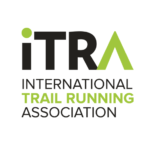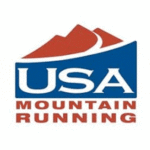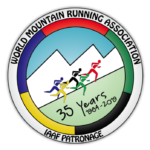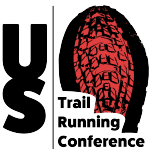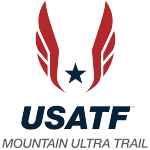
“It’s just a race, or is it?”
“It’s just a race.” A phrase I might console myself with after a tough race. Forget what didn’t go as planned. I’ve crossed the finish line and it’s time to find free food, get my SWAG bag and leave. Dispel my post race over-analysis: “What if I paced myself better and went slower at the beginning? What if I ate more gels, would I not have ‘bonked’ so hard? What if I stopped for that number two in the woods instead of holding it in?”
Hours after I cross the finish line, warm blood still pulses through my aching thighs. The swelling muscles are like freshly baked bread still puffy after it’s removed from the heat of the oven. Sweat is crusted on my face. I haven’t had an opportunity to shower because I’m at a trailhead five miles down a dirt road from the rest of the civilized world. There’s a pocket-sized soap that reads “fresh scent” waiting for me in my motel room. For now, it’s okay because trail runners all stink after racing. We stink together in this community, just as we dive our grimy fingers into the same oversized bowl of M&Ms (though this M&M bowl germ-fest happens less now after the improved sanitation practices resulting from the coronavirus pandemic). Energizing endorphins give me the ability to talk a mile a minute with others about how my race went (or for some this expression might be more like a mile a second). My heart beats faster than full-galloping derby steeds. Both will slow in time. Just like my pace in those last few miles. “Forget it,” I remind myself, “it’s just a race!”
The mind and body will eventually return to normal and back to the daily grind. Give it a few hours, a day or two, and I’ll be walking without the “ultrarunner shuffle” and thinking clearly, probably planning my next race. Even for elite runners, who may define their existence on planet Earth as “to run” (maybe also to eat and sleep. I know plenty of professional runners who do only these three things), may at times tell themselves “this is just a race.”
Win or lose we can move on with our lives much in the same way as before the race. If we’re lucky, we’ve had a handful of life changing races, races that are more than just a race, more than just winning and losing. When does a race become more than just a race? What happens if a race exists for more than just our personal pleasure or some athletic growing pains? Let me take you to the Kingdom of Bhutan (yes, Bhutan is still a Kingdom), and tell you the story about how last Fall’s Snowman Race is changing the lives of its participants and the world.

Photo: Luis Escobar / Snowman Race.
Trail Running Heroes Face The Dragons Of Climate Change
With the holidays still fresh in our minds, one might expect “The Snowman Race” to be some local holiday-themed fun run. Far from it. Far in terms of distance (from anywhere in the US, the Snowman Race, held in the Kingdom of Bhutan, is at least 7,500 miles away) and far in terms of just about everything else, including the fact that your local holiday-themed run is probably not going to take you across mountain passes as high as 17,900 feet and require you to meet your fellow athletes and race organizers at the airport in Bangkok where His Majesty the King of Bhutan has sent a private plane to take you to his country and introduce you to the highest ranking government officials. This is not just a race.
His Majesty the King (I am informed this is exactly how His Majesty The King must be referred to, not His Majesty or King or anything else) believes in trail runners as heroes. Not in terms of heroes such as the knights in shining armor that the word “kingdom” might conjure up, but heroes in terms of how they care about, protect, and defend the wondrous outdoor spaces around the world in which we practice our sport. That is a goal as worthy as that of any knight. That is exactly why His Majesty the King has invited 29 of the world’s bravest knights (I mean trail runners) to Bhutan to undertake the great challenge of His Majesty The King’s personal creation, The Snowman Race. These knights (just go with me now) return home as messengers and witnesses to the effects of climate change in the Kingdom of Bhutan and were hand selected by His Majesty The King based on their athletic merit and influence in their respective trail running communities. Twenty international athletes, including runners from the US, Canada, Japan, UK, France and Tanzania, as well as nine of the strongest local Bhutanese runners were given the opportunity to run in the inaugural Snowman race on October 13, 2022. These athletes were tasked with completing one of the most grueling five-day stage races in the world.
The course followed the historic Snowman Trekking Route, which has been completed by fewer individuals than Mount Everest. It is a 138-mile (222 kilometers) point-to-point route through remote Himalayan wilderness that rests at an average elevation of 14,000 feet (4,267 meters). In recent years, the Snowman route has been directly affected by climate change, which allowed the athletes an opportunity to experience first-hand how climate change is ravaging Bhutan’s beautiful natural landscapes. Glaciers are melting, erosion is increasing, carbon emissions are at an all-time high from Bhutan’s neighboring countries of China and India (who rank first and third on the 2023 World Population Review list for the world’s countries with the highest carbon footprint), and the trails, which still serve as the only means of transit for foods and other goods to many small Bhutanese mountain villages, are in danger of being destroyed. Who best to face this dragon of climate change? His Majesty The King has chosen trail runners.

Photo: Luis Escobar / Snowman Race.
His Majesty The King, an avid runner, mountain biker, and outdoor enthusiast, prioritizes the importance of respecting outdoors spaces for both recreational activities and to protect normal ways of life for the people of Bhutan. The Kingdom of Bhutan is one of only three carbon-negative countries in the world, meaning that it takes in more carbon than it puts out. Bhutan’s protected forests, which cover nearly 70% of the country, absorb the carbon that the country produces. His Majesty The King is a strong proponent of protecting the forests and has supported many innovative conservation practices throughout the country, including providing free electricity to farmers that is generated from renewable hydropower in nearby rivers, creating biological corridors to promote the flow of wildlife through wild spaces and other various environmental subsidies.
Despite these valiant efforts to be champions of climate action, the poor conservation practices and increasing CO2 emissions worldwide directly impact the country’s waters, forests, wildlife and most basic ways of life that rely on the land to feed and sustain much of this 790,000 person country. High mountainous environments, such as those in Bhutan and all across the Himalayas, are some of the most impacted by climate change given their glaciated land and more delicate ecosystems. Bhutan’s constitution designates that 60% of the country must be covered by forests to ensure proper natural cycles and promote conversation. It seems unfair that a country that protects its nature so greatly with its own constitution, should have to pay the price of others’ ignorance. Could you imagine if the United States changed its own constitution to be as proactive at fighting climate change? It might go something like this:
“We the people of the United States, might consider that forming a perfect union is not just a union amongst people, but a union between the land and people. From sea to shining sea, we have the opportunity to protect our purple mountain majesties, our outdoor spaces, and our trails for ourselves and our posterity. This is more than just a race. This is more than just government, science and climate change. This is trail running.”
Are trail runners, as His Majesty The King believes, up to the challenge? How is trail running Bhutan’s best hope for climate action and how might other countries, like the US, learn from this approach?
“The primary goal for these athletes competing in The Snowman Race was to experience the mountains, witness what’s happening and come out of those mountains as messengers. His Majesty The King had any resource available to him and could have chosen a team of scientists for this project but he specifically chose trail runners. I find that extremely exciting, humbling and quite an honor.” — Luis Escobar, race director for The Snowman Race, AllWeDoIsRun founder, and ATRA advisory board member

Photo: Luis Escobar / Snowman Race.
Luis Escobar, respected California race director for AllWeDoIsRun, Road Dog Podcast host, original “Mas Loco” featured in the international best-selling book Born To Run: A Hidden Tribe, Superathletes, and The Greatest Race The World Has Never Seen, and professional photographer was selected by His Majesty The King to organize and direct The Snowman Race.
Despite many trails and open spaces, trail running is not a mainstream sport in Bhutan and Escobar’s expertise in race logistics, media coverage, race technology etc. allowed The Snowman Race to achieve a high level of professionalism comparable to the best races in the West. Escobar, who has attended and directed races across the world, described the professionalism of this event, “This race was unique in that it wasn’t put on by a commercial production company, but was a creation of His Majesty The King. I’m connected with many big races around the world, most of which are commercial events and businesses designed to make money. Business is good for the sport, but what’s unique about The Snowman Race is that the goal was not to make money, create tourism or sell anything. The goal was to bring people from around the world to go into the mountains and see what’s happening there. It was a sincere thing and remains a sincere thing. There was no entry fee for these athletes to compete, but I also liked to remind these athletes that there’s a huge entry fee. Completing their climate action missions.”
Escobar shared with me after the event what stuck out to him most about this event. He responded by telling me about a conversation he had with His Majesty The King about why trail runners, of all people, were chosen to complete the challenge, “I asked His Majesty the King directly why trail runners, of all people, were chosen to be messengers for this event. His Majesty the King said that it is because trail runners care about the environment and are close to the earth. Runners would have the physical ability to go into the mountains and that this mission would resonate within their community to drive change in their countries. I was struck by the brilliance of this idea.”
This is more than just a race, this is a movement.
To be continued…check out part two of this article on The Snowman Race, which features a post race recap from participant and elite runner, Sarah Keyes, as well as further reflection on how The Snowman Race is inspiring climate action mission from the trail running community.
[PRO TIP: Read more of our Climate Action articles to see how trail runners are trying to make a difference.]



